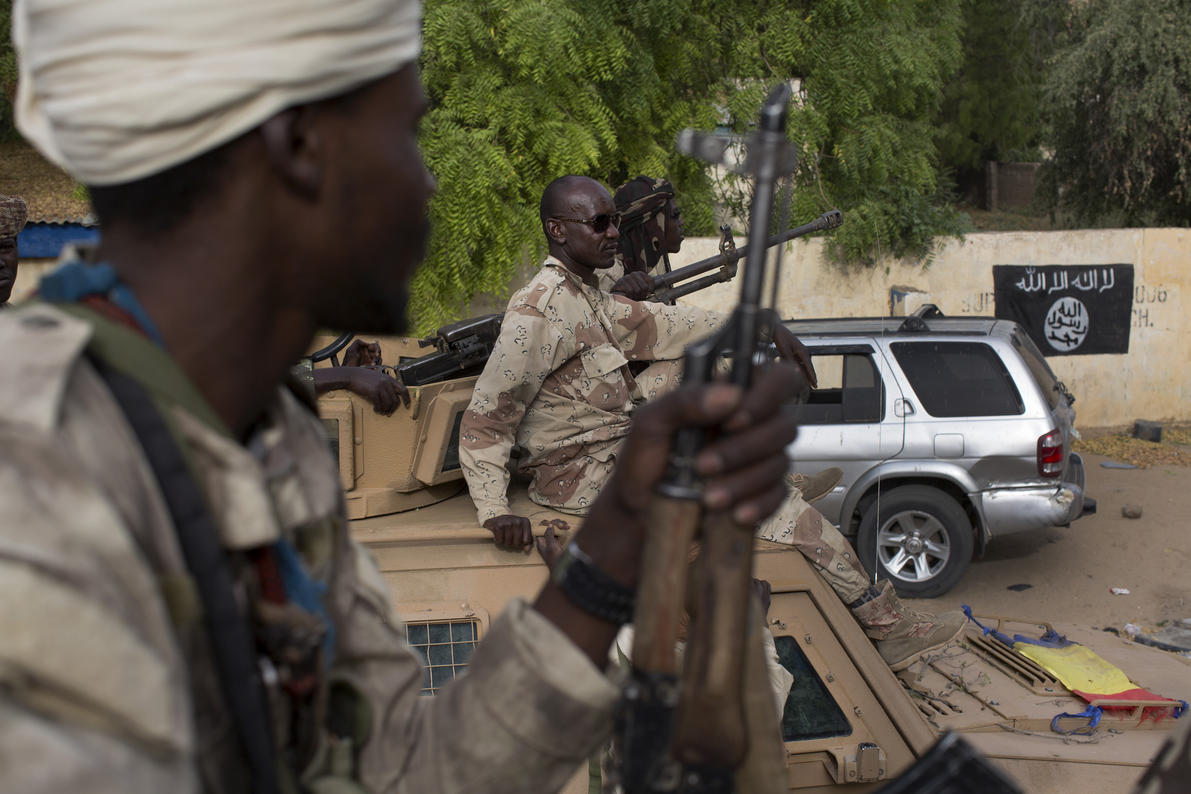
DIFFA, Niger — The military convoy was rumbling across a river near the border last month when soldiers suddenly realized they were surrounded. More than 100 Boko Haram fighters, some on horseback, had encircled the vehicles, ready to strike.
The 300 soldiers from Niger and the handful of US Special Operations forces accompanying them called for help. Soldiers from Chad rushed to the area, and fighter planes from Niger bombed the militants, killing some and sending others fleeing. This time, at least, the quick international teamwork averted what could have been a deadly militant ambush.
Defeating Boko Haram was a flagship campaign promise of President Muhammadu Buhari of Nigeria, the former general who took office a year and a half ago. Since then, the Nigerian military, aided by neighboring countries — along with training from the United States, Britain, and France — has made huge advances. Buhari has claimed for months that Boko Haram has been defeated.
Yet a troubling new series of attacks in Nigeria and the neighboring country of Niger, including one that killed dozens of soldiers, highlights how Boko Haram is far from eliminated. With the rainy season ending and roads becoming passable again, officials are bracing for more ambushes.
Boko Haram has pledged allegiance to the Islamic State, also known as ISIS, and Western intelligence officials believe the recent strikes were carried out by a group that splintered off with the Islamic State’s blessing to focus on Western and strategic military targets. Now, the group is unleashing the kinds of military attacks that had been on the wane in past months.
The splinter group has stated its intent to focus its attacks “away from local Sunni civilians and toward military and Western targets,’’ said Commander William J. Marks, a spokesman for the Defense Intelligence Agency in Washington.
The renewed violence offers insight into the reach of the Islamic State. As it loses ground in Iraq and Syria, the group is relying on affiliates like this Boko Haram faction to hold its ground. Other affiliates are also trying to keep up the fight, even under increasing pressure from the West. The Libya faction, for instance, has taken a pounding in Sirte, but many of its fighters have scattered to the south and other places, where US counterterrorism officials fear they will regroup to fight another day.
The recent Boko Haram developments illustrate the very adaptive and resilient nature of the Islamic State.
Boko Haram has ravaged Nigeria and other sub-Saharan nations along Lake Chad, killing civilians, kidnapping people, and seizing entire villages. At its peak, the group pummeled major military targets and even controlled large swaths of territory.
But in the past year or so, as Nigeria’s president launched another military offensive against the group, Boko Haram’s operations became less organized and more opportunistic. Its strategy often consisted of sending men, women, and children strapped with explosives into markets and mosques to blow up citizens.
Evidence of a weakened Boko Haram began to emerge. Word of defections spread.
In August, a factional split was announced in an online newsletter for the Islamic State. With its pledge to focus on Western and military targets, the faction appears to be concentrated along northern Nigeria and into Niger. The new attacks suggest this group has found a new sense of purpose, emboldened by its Islamic State endorsement.



